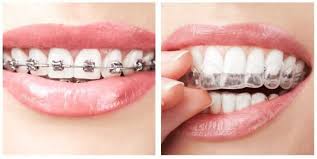Understanding When Aligners Are and Aren't the Right Choice

- While aligners are effective for many orthodontic cases, they are not suitable for every patient.
- Many parents believe aligners represent the best treatment option for their child. It is essential to consult with a qualified orthodontist to determine whether they are truly appropriate for them. Orthodontists possess the specialized training and clinical expertise necessary to guide you toward the most effective treatment choice.
- Complex orthodontic issues such as severe crowding, significant tooth rotations, and large gaps between teeth are often better treated with traditional braces.
- Cases involving severe tooth overlapping, skeletal discrepancies, or those requiring specific tooth movements like extrusion or intrusion typically achieve better results with traditional braces.
- Since aligners are removable, their effectiveness depends entirely on consistent wear, requiring patients to keep them in place for approximately 22 hours per day.
- Aligners can potentially increase the risk of gum disease and tooth decay if patients do not maintain proper cleaning protocols.
- Patients with existing dental work such as crowns or bridges, combined with poor oral health conditions, are generally not suitable candidates for aligner treatment.
- Children whose teeth are still developing or who have primary (baby) teeth remaining may not be appropriate candidates for aligners.
- Patients sometimes request aligners simply because their friends are receiving this treatment, but it's crucial to understand that each orthodontic case is unique and requires individualized treatment approaches.
- As an orthodontist, I carefully select the most appropriate orthodontic appliance for each patient's specific needs. However, patients must understand that every treatment option has limitations. Please do not insist on aligners if your case would be better treated by traditional braces.
You can schedule a consultation appointment with Dr. Seema Bansal for more informantion.

this is very useful and informative.
Thank you
this is the age of the specialist
so much medical – legal responsibility on their shoulder
they can decide the best for us
respect and relax in able care
Thankyou
Very relevant information, considering how aligners are being promoted by non specialists
Thankyou
Thanks for explaining in such a clear and concise way !
Thankyou